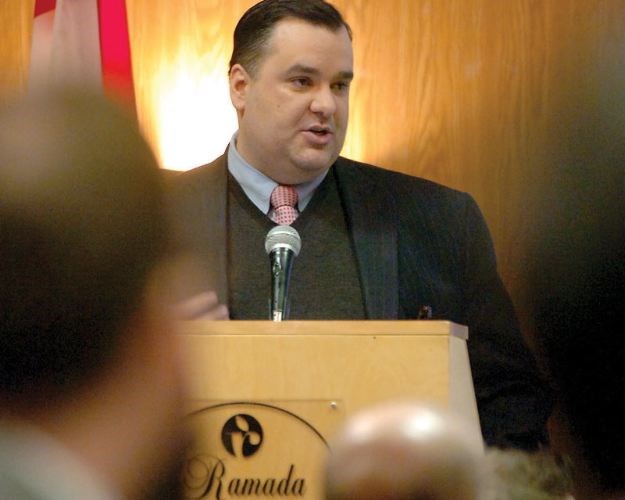B.C.'s highest ranking federal official, former Prince George resident James Moore, made a return on Thursday.
Moore's visit was at the behest of the Northern Development Initiative Trust (NDIT) and the Prince George Chamber of Commerce. Both groups were interested in his thoughts on the burgeoning northern B.C. economy. The Lower Mainland MP is the Minister of Canadian Heritage and Official Languages and also the appointed senior minister for the province of B.C. But, as NDIT boss Janine North told the luncheon audience, "most importantly to us, he is a UNBC graduate."
North told the audience that the combined industrial projects on the official list of proposals amounts to about $70 billion in incoming revenues to the region.
"It's a level of investment unparalleled in the history of B.C.," she said. "For too long we have allowed the metropolitan centres of this country dictate policy when we [rural residents[ are generating the wealth and resources...It is our region that will continue to drive the economy. It is up to us in the north to lead."
Moore agreed, saying Ottawa was aware that in British Columbia, "three-quarters of our wealth is created outside the Lower Mainland but three-quarters of the population lives in the Lower Mainland."
Prime Minister Stephen Harper and the federal cabinet was also aware that the Pacific gateway economy was one of the main drivers of the national economy, which was expected to only grow in the years ahead.
According to federal statistics, Moore said, Canadian business investment was up 9.4 per cent in the last fiscal quarter, and most of that was for purchasing equipment and machinery. He outlined government policies he felt were contributing to economic stability and growth - a fiscal foundation that stood stronger during the recent global economic crises than virtually any other industrialized nation's.
"The things we can control, we are controlling," Moore said. "We were spending far too much time [as a national society] talking about how to spend the taxpayers' money and we need to spend our time instead talking about how to generate more investment for our country."
On a personal level, Moore thought the city of Prince George was particularly poised to reap the benefits of the Asian gateway economy, and the industrial potential on northern B.C.'s agenda. It was something he did not see when he first moved here from his Lower Mainland home to attend UNBC, but he grew to understand the true nature of the local personality and economic position.
"I think Prince George shouldn't be too defensive about the Maclean's magazine thing [calling this Canada's most dangerous city]. It is not talked about too much in the rest of the nation. It is not accurate," he said. "It is a healthy, prosperous, peaceful community. Prince George has a lot to be proud of."



